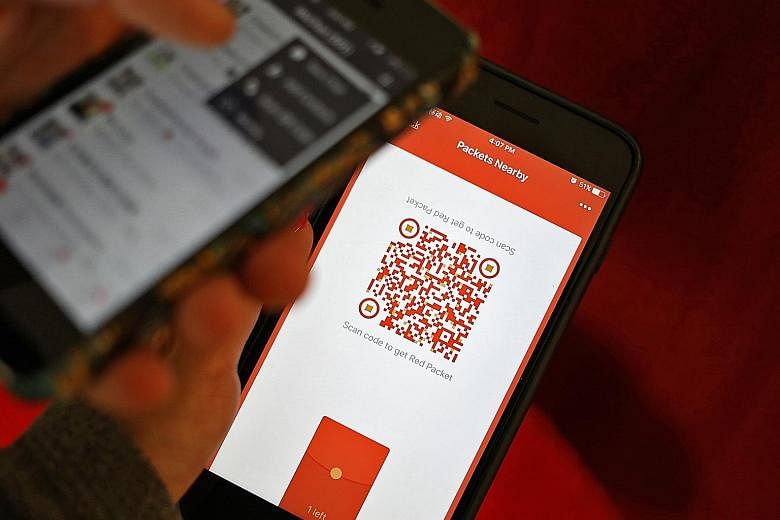From reading news to ordering food to transferring money, many Chinese rely on social media app WeChat to make their lives easier.
WeChat, which is also commonly used for messaging, has become so popular that even party officials are using it for work.
Many officials are now using WeChat chat groups for work communications, instead of the usual e-mails, faxes or phone calls.
Mr Chen Yixin, party chief of Wuhan city in central China, is the "owner" of three WeChat groups which he uses to communicate with different groups of officials.
"I treat this as a platform for exchange and mutual learning. It is also a platform for disseminating the intentions and directions of the city leadership," Mr Chen, who is also deputy party chief of Hubei province, told Phoenix TV in an interview in April.
A city party chief from an eastern province told The Beijing News the chat groups can help improve information sharing and reduce the cost of getting work done.
WeChat, called Weixin in Chinese and developed by Chinese tech giant Tencent, boasts some 938 million users globally, mostly in China. According to statistics from the China Internet Network Information Centre, the government agency responsible for the Internet, WeChat is used by 40 per cent of China's 1.4 billion people.
-
IN NUMBERS
-
938m
Number of active WeChat users globally as of the end of March 2017 .
-
176m
Rise in number of users - 23 per cent - year on year.
An annual WeChat user behaviour report released in April by Penguin Intelligence, a research unit under Tencent, found the app the top choice for daily work communication among Chinese Web users. The survey of more than 20,000 Web users found that 87.7 per cent of them use WeChat for work, while only 22.6 per cent use e-mails.
WeChat doubles up as a social media platform where users can share pictures, videos and articles.
Many government agencies and local governments use WeChat and Weibo, a Twitter-like micro-blogging platform, to disseminate information to the public directly.
But the widespread use of WeChat has raised concerns about how the app can be abused, especially how it can be used to facilitate corruption as bribes can be given out via WeChat red packets, a form of electronic money transfer.
In recent months, state-run media outlets have publicised cases of officials flouting party rules when using WeChat. Some have been warned, and others sacked.
This has led some local governments to roll out rules over officials' use of WeChat.
Zhejiang province, in eastern China, laid out 10 WeChat rules. Among other things, users are banned from undermining party policies, leaking secret information and spreading rumours.
An official in charge of party discipline in Zhejiang told The Beijing News: "Not only do WeChat and Weibo reflect the daily lives of the party officials, but they are also a showcase of the officials' political views, attitudes towards party discipline, moral values and ability to fight corruption."
Other local governments, such as the port city of Tianjin, Liaoyang city in north-eastern Liaoning province and Fengxin county in south-eastern Jiangxi province, also put out similar rules recently.
Observers say this is part of a drive to strictly enforce self-discipline in the party.
Commentator Mu Xuchong wrote in the state-run Legal Daily: "The emergence of such rules, put in place voluntarily by local governments across the country, shows that the push to strengthen party self-discipline is taking root."



